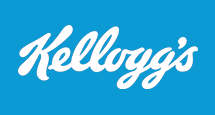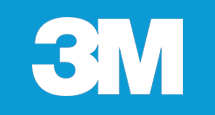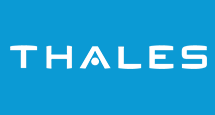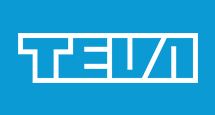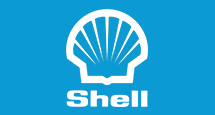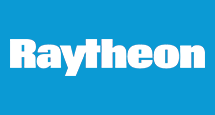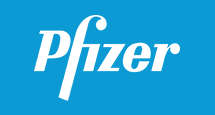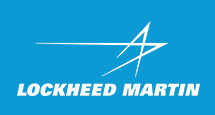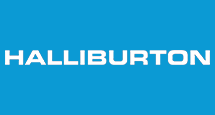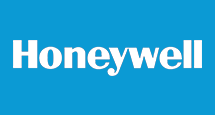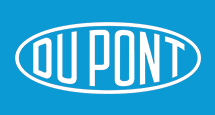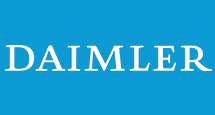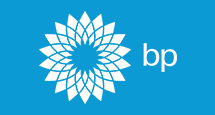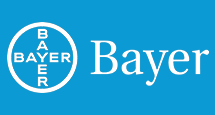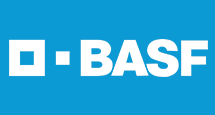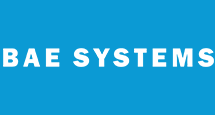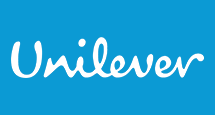Visiongain Publishes Monoclonal Antibody Discovery and Analysis Market Report 2022-2032
16 December 2022
Visiongain has published a new report entitled Monoclonal Antibody Discovery and Analysis Market Report 2022-2032: Forecasts by Business Type (Instruments Manufacturing, Services & Solutions, Ancillary Kits), by Application (Therapeutic Antibody Discovery, Critical Reagent Antibody Discovery, Biomarker and Diagnostic Antibody Discovery, Research Antibody Discovery), by Platform (Hybridoma, Humanization, Phage Display, Yeast Display, Transgenic Rodents), by Type (Antigen Development, Monoclonal Antibody Discovery, Monoclonal Antibody Manufacturing, Polyclonal Antibodies, Label-free Kinetics Analysis, Cell Banking) AND Regional and Leading National Market Analysis PLUS Analysis of Leading Companies AND COVID-19 Impact and Recovery Pattern Analysis.
The monoclonal antibody discovery and analysis market was valued at US$5,234 million in 2021 and is projected to grow at a CAGR of 9.0% during the forecast period 2022-2032.
The Future Generation of Antibody Products Will Be Very Similar to the Current Generation
The subsequent years will see antibodies that are mostly comparable to the existing products hit the market as a consequence of the hunt for antibodies at various stages of research and development in biotech and pharmaceutical companies as well as those being undertaken in academic institutions. While it is true that the potential applications for these fragments have expanded along with the fragment generating technologies, this is not always the case. The development of technology will ultimately lead to more uses for fragments, conjugates, fusion proteins, and multi-specific antibodies. Since it will take time to develop an antibody and obtain regulatory approval for its commercial sale, it is doubtful that this will stay the case going forward. It appears that the future generation of antibody products will be generally comparable to the current generation when taking into account both the nature of the antibody technologies used for novel therapeutic products and the expected indications that are likely to be addressed by those products.
How has COVID-19 had a Significant Negative Impact on the Monoclonal Antibody Discovery and Analysis Market?
Emerging infectious disease outbreaks have increased in frequency during the past few decades. Global epidemics like AIDS, H1N1 flu, and most recently coronavirus illness have spread (COVID-19). New methods should be investigated in the event of a pandemic infectious disease epidemic to enable the quickest assessment of antibodies for passive vaccination or therapy.
In the research and clinical testing of treatment modalities during a pandemic, such as vaccines, nucleic acids, small compounds, convalescent serum, intravenous immunoglobulin G (IgG), and monoclonal antibodies, there is little time to squander (mAbs). Up until recently, the production capacity was constrained and the assessment of mAb therapeutics for this situation was sluggish.
In many firms today, the lead mAb discovery to phase 1 investigational new drug application (IND) product development schedule is 10–12 months, which is significantly shorter than the 18 months that were the industry norm five or more years ago. Clinical trials can go even more quickly thanks to recent technological developments and the acceptance of commercial risks (but not dangers to patient safety or product quality).
How will this Report Benefit you?
Visiongain’s 437-page report provides 168 tables and 183 charts/graphs. Our new study is suitable for anyone requiring commercial, in-depth analyses for the monoclonal antibody discovery and analysis market, along with detailed segment analysis in the market. Our new study will help you evaluate the overall global and regional market for Monoclonal Antibody Discovery and Analysis. Get financial analysis of the overall market and different segments including type, platform, application, business type, and company size and capture higher market share. We believe that there are strong opportunities in this fast-growing monoclonal antibody discovery and analysis market. See how to use the existing and upcoming opportunities in this market to gain revenue benefits in the near future. Moreover, the report will help you to improve your strategic decision-making, allowing you to frame growth strategies, reinforce the analysis of other market players, and maximise the productivity of the company.
What are the Current Market Drivers?
Increase in Launches of New Antibody Products in the Global Market
The medical and healthcare industries depend on the launch of innovative goods. More releases provide as evidence of rising product demand. Demand also has an impact on the market. Monoclonal antibodies have the ability to specifically target tumour cells while also promoting the development of potent anti-tumor immune responses. mAbs are used to treat cancer in a number of other ways, including targeting immune checkpoint inhibitors, bispecific T cell engagers (BiTEs), and pro-tumorigenic chemicals in the microenvironment. Additional mAbs will be licensed in 2020 and 2021, which will aid in the industry's growth. The following is a list of some of the novel molecular entities and cutting-edge biological therapeutic items that the CDER approved in 2022.
Growing Funding for Research & Development of Antibodies
The Bill & Melinda Gates Foundation will contribute funds to assist Aridis develop their inhaled formulation method in order to offer monoclonal antibodies against influenza and COVID-19 at a reasonable price. The Bill & Melinda Gates Foundation (the "Gates Foundation") provided funding to Aridis Pharmaceuticals, Inc. to research the use of their inhaled formulation technology to deliver monoclonal antibodies (mAbs) against influenza and SARS-CoV2 to patients in low- and middle-income countries at an affordable price. A unique platform technology based on spirulina was created by Lumen Bioscience, a project funding partner, and will be used to make the mAbs. Lumen Bio's platform enables the production of therapeutic proteins at a quarter of the cost of current mammalian cell line technologies.
Where are the Market Opportunities?
Therapeutic Monoclonal Antibodies Faced Both Difficulties and Opportunities During Pandemics
Similar to how the phoenix constantly rises from the ashes, the development of therapeutic monoclonal antibodies is faced with challenges as well as chances. Governments and international organisations may support R&D, order therapies in advance regardless of regulatory approval, call for faster regulatory processes, or promote international collaboration and knowledge sharing to support antibody research programmes. This might have immediate advantages for corporations and academic researchers alike, such as high revenues or international recognition. However, political initiatives may also produce longer-lasting actions, revised legislation, and new institutions that might persist far beyond the epidemic.
Improvements in clinical development, the deployment of quick regulatory processes, the establishment of coordinated research institutions, and the development of pandemic response guidelines are a few examples. Together, these characteristics can hasten development and lower the significant barriers to bringing therapeutic monoclonal antibodies to market in the field of infectious diseases, where there is an apparent urgent need but few financial opportunities for the antibody developer.
Giving Manufacturers Security Against Rivalry and the Possibility of Significant Profits
Precision therapeutics utilising highly specific monoclonal antibodies have been utilised to treat a variety of illnesses, including inflammatory, cardiovascular, and malignant ailments. The development of therapeutic monoclonal antibodies as medical treatments is the result of research and development. As a result, they may and regularly are copyrighted, providing makers with protection against competition and the potential for substantial profits. Particularly for therapeutic monoclonal antibodies, expensive biologic agent patent protection is receiving more and more criticism.
Competitive Landscape
The major players operating in the monoclonal antibody discovery and analysis market are AbbVie Inc., Amgen Inc., Amneal Pharmaceutical LLC, AstraZeneca, Bayer AG, BIOGEN, Bristol- Myers Squibb company, Eisai Co. Ltd, Eli Lilly and Company, F. Hoffman-La Roche Ltd., GlaxoSmithKline plc, Johnson & Johnson Ltd., Lupin Limited, Viatris Inc., Novartis AG, Pfizer Inc., Regeneron Pharmaceuticals Inc., Sanofi S.A., Teva Pharmaceutical Industries Ltd., Zydus Lifesciences Limited, . These major players operating in this market have adopted various strategies comprising M&A, investment in R&D, collaborations, partnerships, regional business expansion, and new product launch.
Recent Developments
• In January 2022, Amgen and Arrakis Medicines partnered in research with the aim of identifying and developing RNA degrader therapies against a range of hard-to-treat targets in a number of therapeutic areas. By putting them near to nucleases, small molecule drugs in this brand-new class of "targeted RNA degraders" selectively destroy RNAs that produce disease-causing proteins.
• In July 2022, AstraZeneca acquired TeneoTwo, Inc. including its Phase I clinical-stage CD19/CD3 T-cell engager, TNB-486, currently under evaluation in relapsed and refractory B-cell non-Hodgkin lymphoma.
Notes for Editors
If you are interested in a more detailed overview of this report, please send an e-mail to contactus@visiongain.com or call +44 (0) 207 336 6100.
About Visiongain
Visiongain is one of the fastest-growing and most innovative independent media companies in Europe. Based in London, UK, Visiongain produces a host of business-to-business reports focusing on the automotive, aviation, chemicals, cyber, defence, energy, food & drink, materials, packaging, pharmaceutical and utilities sectors.
Visiongain publishes reports produced by analysts who are qualified experts in their field. Visiongain has firmly established itself as the first port of call for the business professional who needs independent, high-quality, original material to rely and depend on.
Recent News
Visiongain Publishes Drug Delivery Technologies Market Report 2024-2034
The global Drug Delivery Technologies market is estimated at US$1,729.6 billion in 2024 and is projected to grow at a CAGR of 5.5% during the forecast period 2024-2034.
23 April 2024
Read
Visiongain Publishes Cell Therapy Technologies Market Report 2024-2034
The cell therapy technologies market is estimated at US$7,041.3 million in 2024 and is projected to grow at a CAGR of 10.7% during the forecast period 2024-2034.
18 April 2024
Read
Visiongain Publishes Automation in Biopharma Industry Market Report 2024-2034
The global Automation in Biopharma Industry market is estimated at US$1,954.3 million in 2024 and is projected to grow at a CAGR of 7% during the forecast period 2024-2034.
17 April 2024
Read
Visiongain Publishes Anti-obesity Drugs Market Report 2024-2034
The global Anti-obesity Drugs market is estimated at US$11,540.2 million in 2024 and is expected to register a CAGR of 21.2% from 2024 to 2034.
